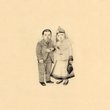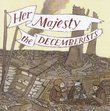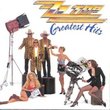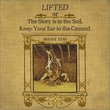| All Artists: Decemberists Title: Castaways & Cutouts Members Wishing: 9 Total Copies: 0 Label: Kill Rock Stars Original Release Date: 1/1/2002 Re-Release Date: 5/6/2003 Album Type: Original recording reissued Genres: Alternative Rock, Pop, Rock Style: Indie & Lo-Fi Number of Discs: 1 SwapaCD Credits: 1 UPCs: 759656039727, 759656039727, 759656039727 |
Search - Decemberists :: Castaways & Cutouts
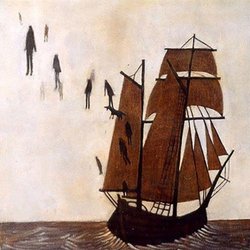 | Decemberists Castaways & Cutouts Genres: Alternative Rock, Pop, Rock
"The Decemberists stick to the same kind of heavy acoustic folk-rock and freakish lyrical balladry that fueled Neutral Milk Hotel's rise to power. Fortunately, their music also possesses enough unique twists to distingu... more » |
Larger Image |
CD DetailsSynopsis
Album Description "The Decemberists stick to the same kind of heavy acoustic folk-rock and freakish lyrical balladry that fueled Neutral Milk Hotel's rise to power. Fortunately, their music also possesses enough unique twists to distinguish it from simple mimicry. The most obvious is the band's often baroque instrumentation, which generally makes for more elaborate arrangements than those of their stylistic forbearer. Hammond organ and subtle theremin flesh out the mix, each adding an anachronistic spin on the otherwise quaint jangle of strings and guitars hearkening to some dusty, distant past." -- Pitchfork [8.1] As its title would suggest, Castaways and Cutouts is a record populated with an eclectic array of unlikely characters in various states of abandonment and revelry. While the likes of Spanish gypsies, infant specters, and Turkish prostitutes are not common elements in modern pop music, these figures find ample footing within the songcraft of Colin Meloy, supported comfortably by the band's lush and orchestral instrumentation. Recorded over a two-month period in a warehouse in Portland's Industrial Southeast, the record swims gracefully between heart-rending, deftly arranged pop and scrappy off-the-cuff dirge Similar CDs
Similarly Requested CDs
|
CD ReviewsThe Least Impressive of Their First Four Albums (* * * Blake Maddux | Arlington, MA United States | 06/30/2008 (3 out of 5 stars) "I will try to keep this short, as you have surely read by now that The Decemberists' debut album Castaways and Cutouts is inhabited by ghosts, prostitutes, nefarious seamen, and various other rogues. You probably also know that the songs evoke a time virtually untouched by modern civilization.
About half of the songs on the album are at least pretty good. These include the only two up-tempo numbers on the album, "July, July!" and "The Legionnaire's Lament". The strong mid-tempo songs include "Leslie Anne Levine", narrated by the ghost of a stillborn baby, "Here I Dreamt I Was an Architect", and "A Cautionary Song", which is about mother who must sell her body to randy sailors in order to feed her children. "Odalisque" mixes up the tempos, and will require the first - if not second or third - reference to a dictionary for most listeners. The prominent arpeggios toward the end are reminiscent of "Because" by The Beatles. With these five songs going for it, the first half of the album is uniformly strong. Alas, several songs on the second half of the CD are a bit, well, boring. "Cocoon" slows the tempo significantly, to the detriment of the song and the album. It is quite difficult to remain interested in it over the course of its seven minutes. "Grace Cathedral Hill" is a better song, but does little to add any momentum. The aforementioned "The Legionnaire's Lament" rescues the listener from the onset of ennui, but "Clementine" - a sweet and sincere song worth listening to at least once - threatens to set it right back in. Fortunately, Castaways and Cutouts closes on a upbeat note, albeit a very long one. "California One/Youth and Beauty Brigade" is the first epic of the group's career. It is a dreamy, mid-tempo number featuring a tasty steel guitar and a seamless transition from its first half to its second. The ironically-named brigade of the title welcomes "bed wetters", "ambulance chasers", "poor pick-pockets", "the light-loafered", and "bored bench warmers". The last verse includes a clever first-person reference to the Multnomah County Library in Oregon, where Meloy's overdue fines were likely very large. Overall, this is a good debut. It introduces a singular new talent on the indie rock scene. Even when then songs themselves are not that great, the songwriting and instrumentation are solid. Colin Meloy is a great front man with a unique voice, literally and figuratively. His lyrics are vivid and his vocabulary is enormous. Raise your hand if you have ever heard words like "odalisque" (which I think he mispronounces), "parapet", "wastrel", "camisole", "balustrade", "bagatelle", "fecundity", and "charabanc". They should start including Decemberists albums with SAT study guides. Instrumentally, the guitars all almost exclusively acoustic, and accordions add an old-world flavor to several of the songs. If you are inclined to like The Decemberists, you will enjoy Castaways and Cutouts. If it is the first one that you hear by them, you will be impressed by how much they improve on later albums. If you work your way back to it, you will probably find it to be a bit of a disappointment. One will get a more accurate sense of how good this band is from Her Majesty, Picaresque, or The Crane Wife. Rather than risk not liking Castaways and Cutouts very much, I would highly recommend going with one of their other albums as a first purchase. (Frankly, each of the band's subsequent releases is so much better than Castaways and Cutouts that they render it the least essential of their first four albums.) I know, I said that I would *try* to keep this short. I failed. Sorry." |

 Track Listings (10) - Disc #1
Track Listings (10) - Disc #1
